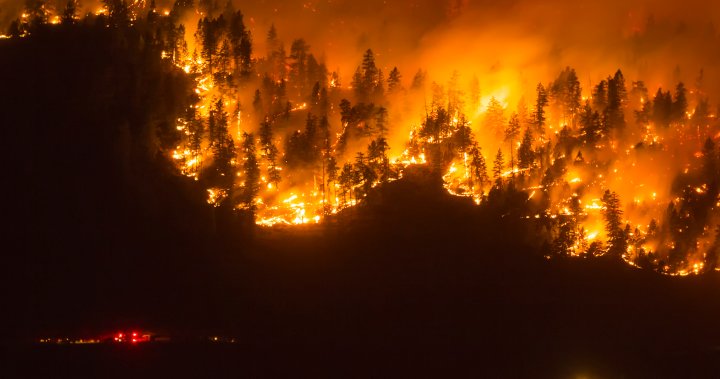
Wildfires to scorch large parts of the world in coming decades, UN warns
Global News
The likelihood of catastrophic wildfires globally could increase by more than 50 per cent by the turn of the century, according to a report from the United Nations.
A warming planet and changes to land use patterns mean more wildfires will scorch large parts of the globe in coming decades, causing spikes in unhealthy smoke pollution and other problems that governments are ill prepared to confront, according to a UN report released Wednesday.
The Western U.S., northern Siberia, central India, and eastern Australia already are seeing more blazes, and the likelihood of catastrophic wildfires globally could increase by a third by 2050 and more than 50 per cent by the turn of the century, according to the report from the United Nations Environment Program.
Areas once considered safe from major fires won’t be immune, including the Arctic, which the report said was “very likely to experience a significant increase in burning.”
Tropical forests in Indonesia and the southern Amazon of South America also are likely to see increased wildfires, the report concluded.
“Uncontrollable and devastating wildfires are becoming an expected part of the seasonal calendars in many parts of the world,” said Andrew Sullivan, with the Commonwealth Scientific and Industrial Research Organization in Australia, one of the report’s authors.
The report describes a worsening cycle: Climate change brings more drought and higher temperatures that make it easy for fires to start and spread, and in turn those blazes release more climate-changing carbon into the atmosphere as they burn through forests and peatland.
Some areas including parts of Africa are seeing decreasing wildfires, in part because more land is being devoted to agriculture, said report co-author Glynis Humphrey from the University of Cape Town.
But UN researchers said many nations continue to spend too much time and money fighting fires and not enough trying to prevent them. Land use changes can make the fires worse, such as logging that leaves behind debris that can easily burn and forests that are intentionally ignited to clear land for farming, the report said.

 Run 3 Space | Play Space Running Game
Run 3 Space | Play Space Running Game
 Traffic Jam 3D | Online Racing Game
Traffic Jam 3D | Online Racing Game
 Duck Hunt | Play Old Classic Game
Duck Hunt | Play Old Classic Game

















